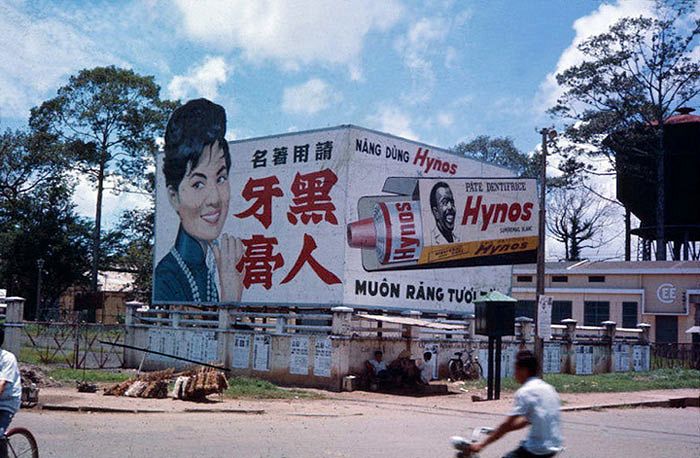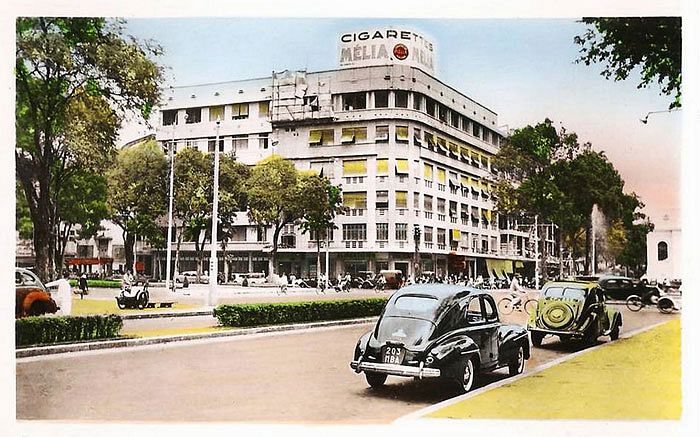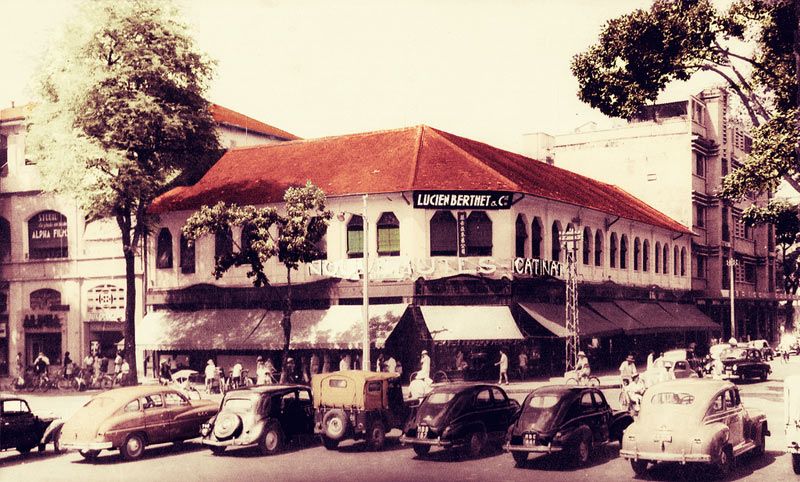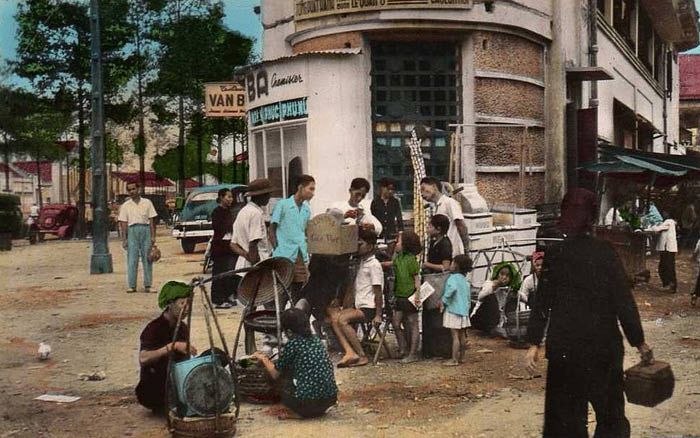Though it was a French colony, companies from all over Europe were engaged in trade and production in Indochina, especially in Saigon. Germans in particular played a major role in the city’s turn-of-the-twentieth-century economic growth. But as World War I engulfed the Continent, changing geopolitics spread to Saigon and the city’s German population was deported, almost overnight.
Thanh Nien, who brushed the dust off this chapter of Saigon history, started with the story of F.W. Speidel, an influential German in Vietnam during the late 1800s and early 1900s who ran one of the biggest German businesses in the city, one which traded everything from oil lamps to marine insurance.
His company, Speidel et Cie, one of the first foreign companies to operate in Saigon (it opened its first office in 1868) had been involved Asia’s vast maritime economy which centered around Singapore, Saigon, Phnom Penh, Hai Phong, Hong Kong, Beihai, Xiamen, Shanghai, Yokohoma and Nagasaki.
The operation had been started by his father, Theodore Speidel, who was a member of Saigon’s Commerce Department from 1882 until he died in 1909.
His son, F.W. picked up where his father left off, serving as the consular representative of Germany, Belgium and Denmark in Saigon.
Beyond his commercial ties to the city, Sewell had close cultural relations with Chinese traders in Cho Lon, and became a member of the management board of the southern medical association based in Cho Lon known as Association Hospitalière laïque de Cochinchine.
The German dream in Saigon ended in August 1914 with the outbreak of World War I which pitted Germany against France.
Anti-German fervor spread quickly to French colonies including Indochina where demonstrations, led by French nationals, called for the immediate expulsion of the city’s small but active German population.
On August 6, after marching on the German embassy and taking down its flag, German businesses in the city were looted and burned to the sounds of French patriotic songs.
33 Germans, including F. W. Speidel, were forced to leave the city on the Norwegian ship Solveig at 3am the next day. Not only did they leave all their businesses and belongings behind, but their Vietnamese employees faced threats and even physical abuse from angry French crowds.
German rice mills (one of which is pictured above) were seized by the colonial government and auctioned on August 20, 1915 while Speidel’s oil lamps and oil ships were replaced by ships belonging to US Standard Oil.
Whatever Asian holdings Germany didn’t lose during the war, it lost with the signing of the Treaty of Versailles in 1919, with Japan and Aulstralia taking over its colonies in China and Papua New Guinea, respectively.
Obviously the world has changed a great deal over the past century and Germans are once again active in Vietnam’s commercial, educational and public works development.
Hey, they even got a prime piece of real estate in the center of District 1 last month for VND1.














